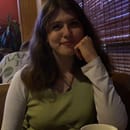With the invasion of Ukraine by the Russian president Vladimir Putin, many people across the world have publicly expressed their opposition. However, those in Russia also seeking to resist their President are being met with harsh repercussions. So far, there have been a total of 1,997 arrests, according to OVD-Info News, made throughout Russia as tensions between the Russian people and authorities escalate.
Moscow
Of those 1,997 arrests, 1,081 of the protestors in Moscow were detained, and in Pushkin Square, a well-known protest area in Moscow in front of Alexander Pushkin’s statue, 50 protestors were arrested, some of them supposedly even passer-by. On this square as well as other parts of Moscow and St. Petersburg, the Human Rights Watch collected videos of police brutality, oftentimes shown utilizing physical aggression to silence the protestors and denying them the right to medical assistance and lawyers. Among those detained in Moscow was human rights activist Marina Litvinovich, who called for denunciations of the Ukrainian invasion on social media and for everyone else in Russia to “come out and say we are against the war.”
St. Petersburg
Compared to Moscow, the number of detainees in St. Petersburg so far is 473. The primary location of these oppositions occur in the Gostinny Dvor metro station, where many of the protestors hold picket signs with the words “No to war,” and “Stop the war” while lines of white vans are strategically lined on the road, prepared to take anyone away who oversteps their boundaries or are simply in the vicinity of where most of the action is happening. Even though it is the hometown of Putin, anti-Putin sentiments were echoed on the streets, and the guards were choosing random people amid the protest to detain and take to the buses.
Online
Despite the growing presence of protests across Russia, censorship and warnings are still prevalent, as the Russian censorship service, Roskomnadzor, advises media companies to only display approved information covering the invasions. This comes from Facebook’s (Meta) choice to restrict Russian nationalist media reports from its site. With videos circulating online of the multitude of protests around the world, the situation is gaining more traction, especially on social media, where users can express their views through the popular hashtag, #notowar. Also gaining traction is the petition by Lev Ponomarev to call off the troops invading Ukraine and encourage people to speak out against Putin and the Russian government. This petition has now received close to 1,000,000 signatures, but Ponomarev was detained on February 24th under the charge of an unsanctioned protest.
What this means for the future
Russia has always been notorious for silencing its people when they speak out, imposing strict rules on protests with consequences including prison, excessive fines, and other extreme measures. Although the higher powers in Russia do not seem affected by the protests to halt their attacks, more civilians are becoming enraged as their friends and/or family are residing in Ukraine, and their own country is invading theirs. Even Ukrainian president Volodymyr Zelenskiy thanked the Russian protestors for their dangerous outspokenness against the corruptness of their government and urged them to persuade their leaders to stop the war and save their soldiers. The majority view regarding Russian protests is so long as they will endure and notify Putin and the higher powers that their actions against Ukraine are not supported by his people, the greater chance there is to weaken his influence over them.


